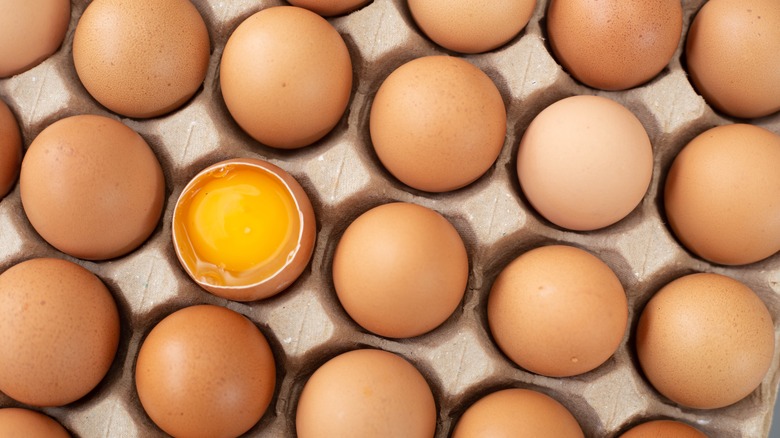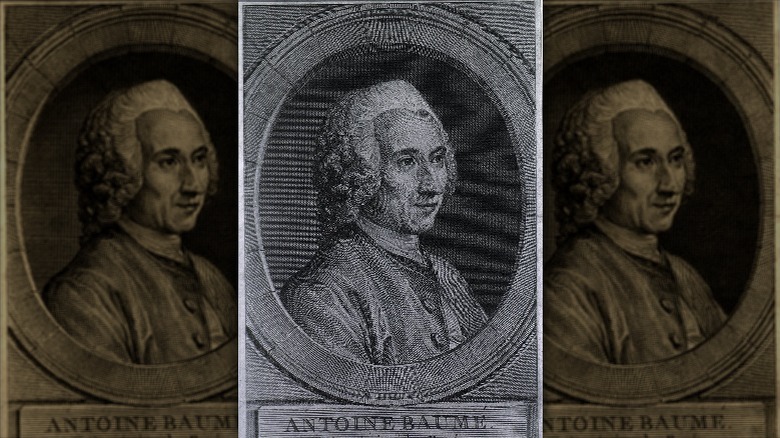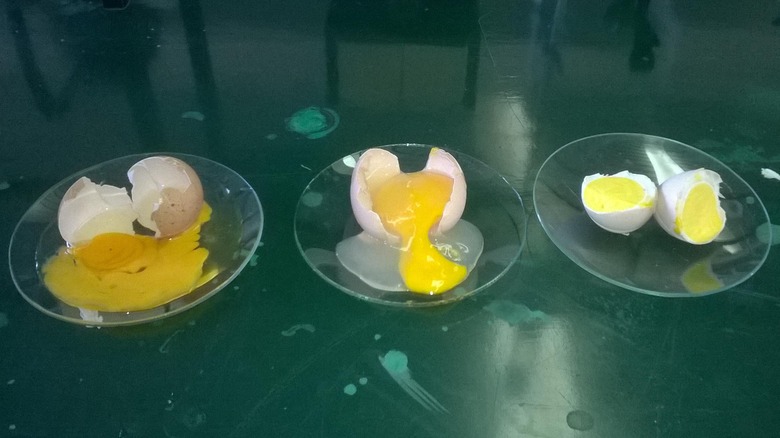Baumé Eggs: The Cooking Style For Boozy Eggs You've Never Heard Of
Did you know it's possible to cook an egg without heat? Obviously, there are lots of foods you can eat cold, as is, like produce. When it comes to truly preparing cuisine, though, heatless options may seem limited.
Raw meat and fish are probably your best bets, but curing those with additions like citrus juice for ceviche is essential. There are also blended foods — cold soups like Gazpacho or fruit-and-veggie smoothies — where the sum is greater than its parts. Both of those categories are prime examples of how the components of a dish are equally as important as the dishes themselves. This is, of course, gastronomy!
The Baumé egg is a gastronomical wonder. It results from putting a whole, fresh egg in alcohol, solidifying the contents inside its shell, and essentially cooking it. How does that work, though, and why would anybody do this?
The dish was named after a scientist
Born in 1728 (and having died in 1804), the French professor Antoine Baumé has largely been forgotten by the world. There are some exceptions to that sad fact, including the boozy egg dish bearing his name. Indeed, when the French golden age of chemistry was coming about, Baumé restyled an apothecary shop into a small factory that churned out medicine, leading to some nifty discoveries.
Baumé's mind, however, was focused on more than just health and wellness. His interest in chemistry and the body extended to cuisine, as well. As a result, we now have the Baumé hydrometer, a tool used to measure the density of liquids. We also have the Baumé scale, a related tool that identifies sugar concentration in liquids by looking at density. (We even once had an expensive restaurant named after Baumé in San Francisco focusing on molecular gastronomy.) And best of all, we have the Baumé egg itself.
Antoine was not the first or last gastronome
What came first, the gastronomy or the Baumé egg? Depending on how loose you want to get with the definition of gastronomy (Merriam Webster says it's "the art or science of good eating"), the practice has arguably been around since humanity discovered fire. Meanwhile, the Baumé egg almost certainly has not been — alcohol was discovered a few thousand (not ) years ago. The phrase, however, didn't specifically refer to the "... knowledge of whatever concerns [humanity's] nourishment," as defined by one of the pioneers of the modern trend until the late 20th century.
Either way, in the 18th (or perhaps very early 19th century), Baumé figured out the ethanol in alcohol will eventually permeate an egg's shell, coagulate the proteins, and effectively boil it after an entire month of soaking. We're unsure why you would want to wait weeks to get a cold, boozy egg, but the process is cool! Most importantly, Baumé eggs were an illuminating stepping stone in the long journey to fully understanding our food.


